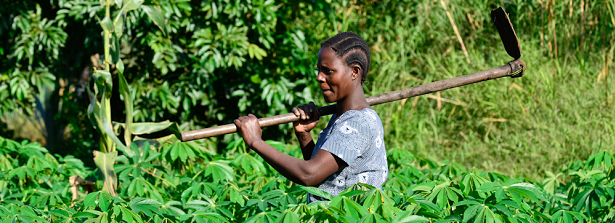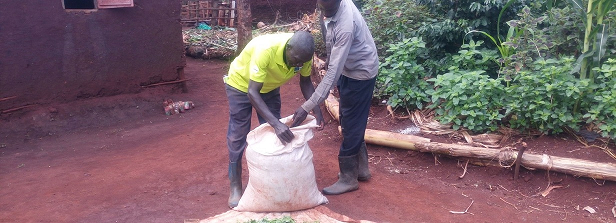Commercial Seed System for African Indigenous Vegetables in Uganda

Duration: 01 July 2017 to 31 July 2020
Project information
Aim: This project “Development of a Gender Responsive Commercial Seed System for African Indigenous Vegetables (AIV) in Uganda” aims to benefit 50 farmer groups directly involved in vegetable seed production and 5000 smallholder vegetable farmers, who are mainly women and youth farmers. Seed production will be backed up by seed business services such as entrepreneurship, marketing, and strategic linking and alliances in vegetable seed business clusters. This will entail increased interaction between vegetable seed value chain actors such as producers, seed traders and seed regulators and inspectors.
Objectives: The overall objective of this project is to establish a gender responsive functional AIV seed system in Uganda, which will enhance uptake and utilization of AIV seed and related innovations for sustainable production of indigenous vegetables. The specific objectives of the project are:
- Enhanced capacity of 50 women and youth groups for production AIVs pre-basic and basic seeds,
- Increased utilization of quality assurance services for AIV seed production,
- Developed business models for certified AIV seed production and marketing,
- Optimized scales of production for the AIVs seed system,
- Increased economic women power and decision making at household and community level because of engaging in profitable sale AIV seeds.
Method: The consortium shall employ participatory learning action, and equity-focused research with a view of creating positive deviance that will spur collaboration and generate value for all small holder women farmers, youth, seed traders, commercial vegetable growers and vegetable consumers ultimately. More women and youth are unusually highly involved in vegetable seed production and marketing in Uganda. Therefore because of this fact the consortium shall use women and youth groups whose membership composition is at least 70% women or youth. Furthermore, head of the groups must be female.
Country: Uganda.
Dutch policy goals: Eradicating existing hunger and malnutrition; Promoting inclusive and sustainable growth in the agricultural sector.
Progress reports
Year 1: Solanacea leafy vegetable is one of Africa’s indigenous vegetables with high nutritive value. Its production and trade is limited by access to quality seeds. Seed multiplication offers huge opportunities for women and youth farmers that are traditionally growers of vegetables. This project was designed to benefit 50 farmer groups through increased interaction between vegetable seed value chain actors, namely; farmers, traders and seed inspectors and researchers. Although this project has been implemented for only one year, early success is already being registered. Four entrepreneurial women farmer groups in 2018 planted 4 acres of Solanum vegetables, which is expected to generate 200 kilograms of pre-basic, that will in turn plant 200 new acres of basic seeds. Pre-basic and basic seeds are prerequisite for a seed system. Similarly, 13 other farmer groups are proud producers of 13 acres of Quality Declared Solanum Seed that will generate 700 kilograms for sale to vegetable farmers.

